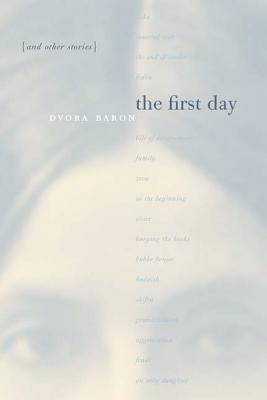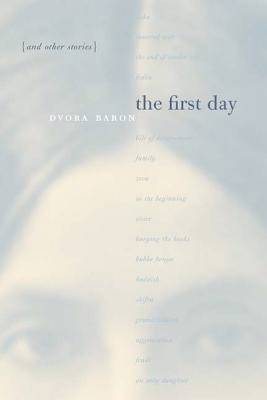
Je cadeautjes zeker op tijd in huis hebben voor de feestdagen? Kom langs in onze winkels en vind het perfecte geschenk!
- Afhalen na 1 uur in een winkel met voorraad
- Gratis thuislevering in België vanaf € 30
- Ruim aanbod met 7 miljoen producten
Je cadeautjes zeker op tijd in huis hebben voor de feestdagen? Kom langs in onze winkels en vind het perfecte geschenk!
- Afhalen na 1 uur in een winkel met voorraad
- Gratis thuislevering in België vanaf € 30
- Ruim aanbod met 7 miljoen producten
Zoeken
Omschrijving
Dvora Baron (1887-1956), the first modern Hebrew woman writer, was born in a small Lithuanian town in 1887. Her father, a rabbi, gave his daughter a thorough education, an extraordinary act at the time. Baron immigrated to Palestine in 1910, married a prominent Zionist activist, but defied the implicit ideological demands of the Zionist literary scene by continuing to write of the shtetl life she had left behind.
The eighteen stories in this superb collection offer an intimate re-creation of Jewish Eastern Europe from a perspective seldom represented in Hebrew and Yiddish literature of the late nineteenth and early twentieth centuries. Baron brings vividly to life the shtetl experiences of women and other disenfranchised members of the Jewish community. Her stories relate the feelings of a newborn girl, a "Jewish" dog, an impoverished bookkeeper, a young widow who must hire herself out as a wet-nurse, and others who face emotional and physical hardships.
Baron's fluid writing style pushes the flexibility of Hebrew and Yiddish syntax to its limits, while her profound knowledge of both biblical and rabbinical literature lends rich subtleties to her stories. A companion to Conversations with Dvora: An Experimental Biography of the First Modern Hebrew Woman Writer, by Amia Lieblich (California, 1997), this collection is drawn from Baron's earlier as well as later works.
The eighteen stories in this superb collection offer an intimate re-creation of Jewish Eastern Europe from a perspective seldom represented in Hebrew and Yiddish literature of the late nineteenth and early twentieth centuries. Baron brings vividly to life the shtetl experiences of women and other disenfranchised members of the Jewish community. Her stories relate the feelings of a newborn girl, a "Jewish" dog, an impoverished bookkeeper, a young widow who must hire herself out as a wet-nurse, and others who face emotional and physical hardships.
Baron's fluid writing style pushes the flexibility of Hebrew and Yiddish syntax to its limits, while her profound knowledge of both biblical and rabbinical literature lends rich subtleties to her stories. A companion to Conversations with Dvora: An Experimental Biography of the First Modern Hebrew Woman Writer, by Amia Lieblich (California, 1997), this collection is drawn from Baron's earlier as well as later works.
Specificaties
Betrokkenen
- Auteur(s):
- Vertaler(s):
- Uitgeverij:
Inhoud
- Aantal bladzijden:
- 261
- Taal:
- Engels
Eigenschappen
- Productcode (EAN):
- 9780520085381
- Verschijningsdatum:
- 30/04/2001
- Uitvoering:
- Paperback
- Formaat:
- Trade paperback (VS)
- Afmetingen:
- 140 mm x 216 mm
- Gewicht:
- 344 g

Alleen bij Standaard Boekhandel
+ 101 punten op je klantenkaart van Standaard Boekhandel
Beoordelingen
We publiceren alleen reviews die voldoen aan de voorwaarden voor reviews. Bekijk onze voorwaarden voor reviews.









